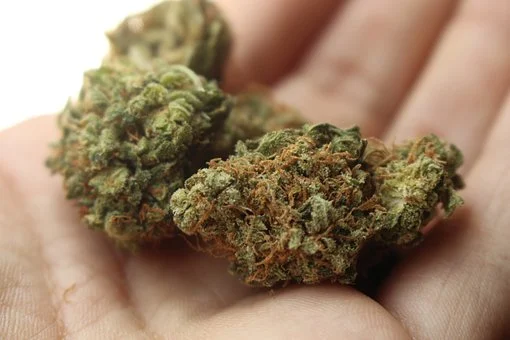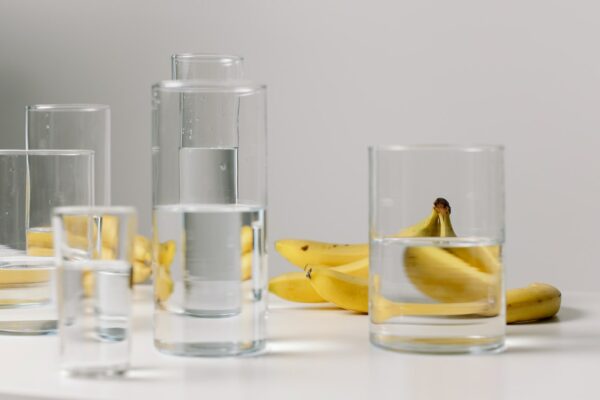Delta 9 and 8 are cannabinoids but have different bodily effects. The former is the most common cannabinoid and is responsible for the “high” feeling associated with marijuana. The latter is less common but has some effects that Delta 9 THC doesn’t have. Understanding the difference between these two cannabinoids can help you make informed decisions about using marijuana.
What Are Delta 8 and Delta 9 THC?
THC is the primary psychoactive compound in cannabis. It is what gets you “high.” There are many additional forms of THC, but the two most common are the mentioned compounds. The former is a minor cannabinoid that makes up only 0.1% of the cannabis plant. It is similar to the latter but much less potent. Delta 9 THC is the most typical form of THC, and it is the one that is responsible for the majority of the plant’s psychoactive effects. Delta 8 THC converts into the former in your body, so it has many of the same effects as the latter. However, since the former is less potent, it produces a milder high. Some people find that 8 provides a more clear-headed high than 9.
Difference Between Delta 9 And Delta 8
1. The former is the most common and psychoactive form of THC
Delta 9 THC is the most common form of THC. It is typically available in cannabis strains that are high in THC. It binds to the CB1 receptors in the brain, which are responsible for memory, learning, and other cognitive functions. It also binds to the CB2 receptors accountable for pain and inflammation. When it enters the body, it produces several different effects. The liver metabolizes this compound, and the kidneys extract it. The half-life of this compound is about 9 hours; It takes about 9 hours for the body to eliminate half of the ingested compound.
2. Delta 8 THC is a non-psychoactive cannabinoid
It is a cannabinoid found in hemp and cannabis plants. Unlike Delta 9 THC, the primary psychoactive ingredient in marijuana, it is non-psychoactive. It does not produce the “high” associated with marijuana use. Despite this, it can have numerous effects that can help you feel better. Given its wide range of potential impacts, it is a promising new option for those seeking an alternative to traditional medication.
3. The two cannabinoids are structurally similar but have different effects on the body
These two cannabinoids are similar in structure but have different effects on the body. Delta 8 interacts with the CB1 receptors in the brain, while Delta 9 binds to both CB1 and CB2 receptors. This difference in binding affinity is responsible for the different effects these cannabinoids have on the body. The former produces a more cerebral high, while the latter is associated with a more body-focused result. However, both cannabinoids can create a sense of relaxation and well-being. In addition, the former is more potent than the other, meaning it can have these effects at lower doses. As a result, it is becoming increasingly popular as a way to enjoy the effects of cannabis without the effects of THC.
4. Both cannabinoids come from cannabis strains, with varying levels of each
Both cannabis compounds are two of the most typical cannabinoids in cannabis strains. Delta 8 is known for its mildly psychoactive effects, while 9 is the primary cannabinoid responsible for the plant’s mind-altering effects. However, both cannabinoids can vary widely in terms of their concentration levels in different strains. For example, some strains may contain very high Delta 9, while others may have only trace amounts. Likewise, the ratio of both can also vary significantly from one strain to another. As a result, it is essential to be aware of the specific concentrations of each cannabinoid when choosing a cannabis strain. Otherwise, you may not get the expected outcome.
5. Delta 9 products are more potent
Delta 9 THC is the active component in cannabis that gets users high. It can be smoked or vaporized in flower (bud) form without extraction, although edibles, topicals, and other preparations require an extraction process. Delta 8 is a cannabinoid comparable to 9, but it is only about half as potent. It is in minimal doses in cannabis flowers and needs to be extracted. Nearly all products synthesize from CBD from cannabis plants. Because of this, these products are not as potent as those that contain Delta 9 THC.
6. Delta 9 products are easier to find than Delta 8
Delta 8 products are also more affordable than their Delta 9 counterparts, making them a popular choice for budget-conscious users. However, its products can be hard to find in stores and may not be available in all states. Delta 9 products, on the other hand, are widely available and legal in most states.
Are Delta 8 and Delta 9 Legal?
Both are legal under federal law in the United States. However, there is some confusion over the legality of these compounds because they are similar to marijuana. Delta 9 is the active ingredient in marijuana and comes under Schedule I drug by the Drug Enforcement Administration (DEA). On the other hand, eight is not specifically on that list as a controlled substance by the DEA. Consequently, it is lawful to sell and consume in most states.
Takeaway
It is essential to know the difference between the two when choosing a strain for medical or recreational use. When it comes to cannabis, many different strains are available, each with its unique set of effects. It is vital for medical or recreational users to know the difference between the two compounds to choose the right strain. Delta 8 is a potent cannabinoid that is known for its mind-altering effects. 9, on the other hand, is a less potent cannabinoid typically used for its properties.




